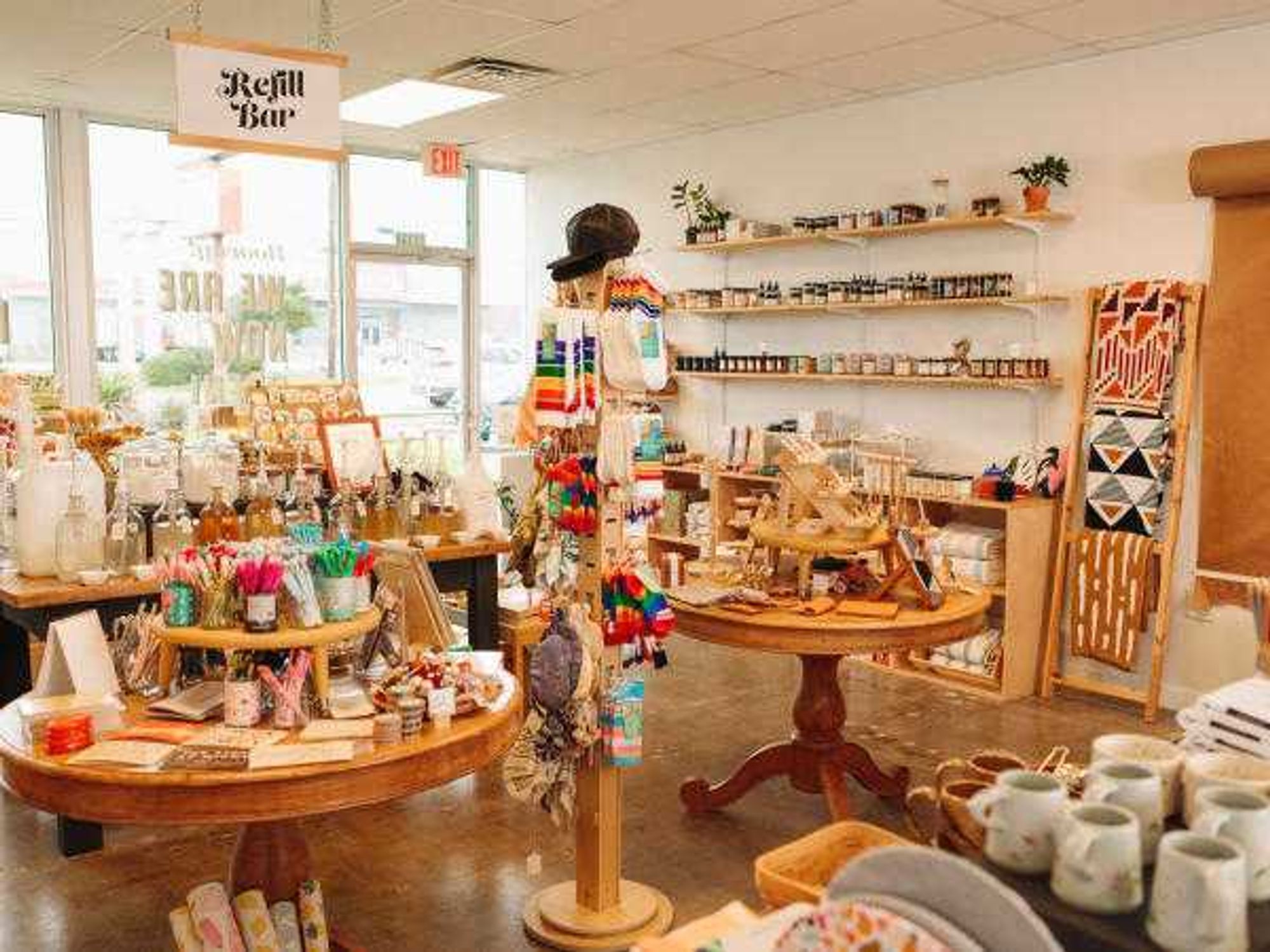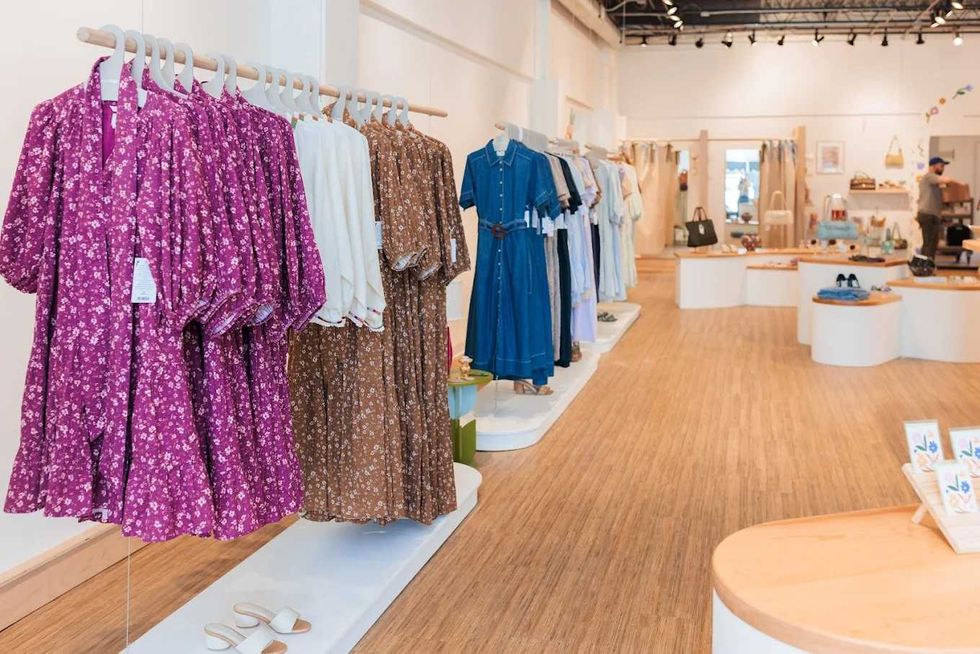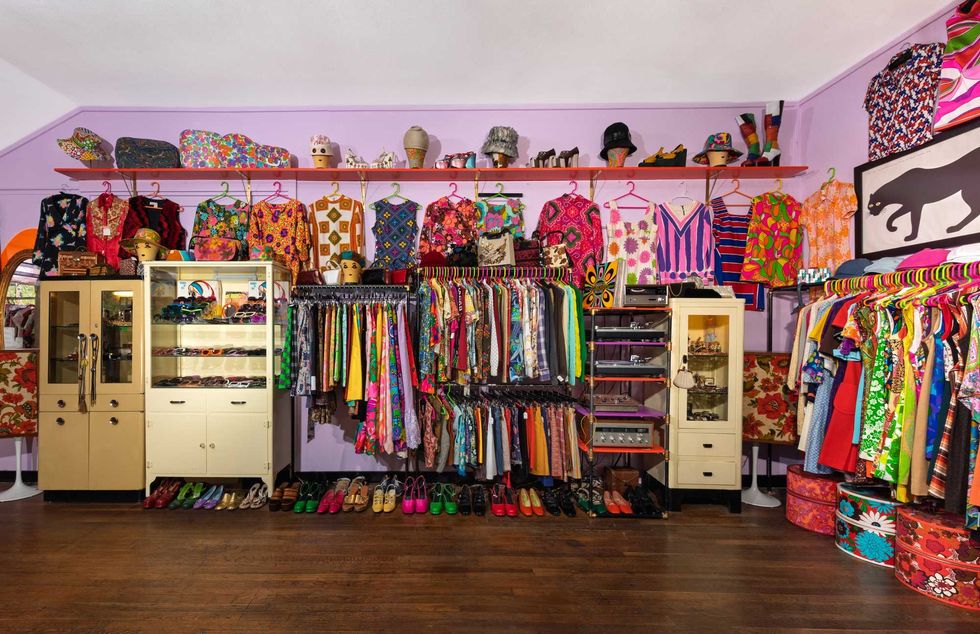November 28 is Small Business Saturday, and to celebrate this niche "holiday," the husband-and-wife team at boutique general Parker + Scott are bringing back their "ATX Small Business Passport" for the second year in a row.
The passport program, which runs November 28 through December 31, is designed to incentive Austinites to shop local through a stamp-collection rewards program, rather than opt for big-box retailers. Austinites are already some of the most loyal local business shoppers in the country, but Parker + Scott's ATX Small Business Passport makes it even easier — and more fun — by offering rewards for customers who shop small and often.
Shoppers receive a physical, custom-designed passport and in it, can collect stamp for each purchase at participating local businesses. After earning five stamps, customers become eligible for the first of three exclusive rewards, which vary from shop to shop. Plus, the first 50 shoppers to fully fill their passports will receive a goodie bag filled with treats, samples, and fun surprises from the partner brands.
"We love this program because it’s not just about shopping — it’s about showing up for the businesses that make Austin feel like Austin. For a lot of small businesses, the holidays aren’t just busy — they’re make-or-break. And every time you choose to shop small, you’re helping a neighbor, a family, a dream," says Parker + Scott founder Jess Haisley.
Here are the brands partnering with Parker + Scott for this year's passport, plus some products we think would make good gifts.
7th Street Candle Co.
507 W. 41st St.
This boutique candle store sells handmade, non-toxic candles for a "healthier home." Candles come in seasonal scents (including one called "Mexican Hot Chocolate," which sounds cozy), that are sometimes floral, herbaceous, spicy, sweet, or woody. Aside from candles, they offer adorable embroidered holiday ornaments.
BookWoman
5501 N. Lamar Blvd., A-105
BookWoman is an independent feminist bookstore that's been around Austin for nearly 50 years. It is best known for its selection of books by authors from the LGTBQ+ community, women, and minorities and often runs events supporting Austin's queer and feminist community. They have a whole fun list of banned books that you can shop in-store and online.
Clover and Maven
1023 Springdale Rd., Building 6, Unit D
Clover + Maven is a women-led artisan collective and gift shop, tucked away in Springdale General in East Austin. This large studio space features work from more than 80 local makers, including handmade jewelry, ceramics, glass, art, books, home decor, cards, and snacks, and more. As a one-stop marketplace for gifts, it seems like a good option to shop for nearly everyone on your list.
 HarperSage is an ethical women's clothing brand on Burnet Road. Photo courtesy of ATX Small Business Passport
HarperSage is an ethical women's clothing brand on Burnet Road. Photo courtesy of ATX Small Business Passport
HarperSage
4803 Burnet Rd.
This ethical women's clothing brand, founded by local designer Meghan Herman, is best known for its small-batch, sustainably-made apparel for women. The store sells jumpsuits, dresses, tops, bottoms, and accessories, and helpfully, even includes put-together looks on their websites, so you can shop entire outfits for the season.
Honey Hill Market
1800 W. Koenig Ln.
This vintage apparel and home goods store is known for an eclectic selection of Southwestern and Western styles, including cowboy hats, boots, denim jackets, and more. While it mostly advertises women's clothing, the store also has some home goods, gifts, and more gender-neutral items.
Kindred Spirits
1111 E. 11th St., Suite 100
Kindred Spirits is a boutique store with a little bit of everything: clothes, home goods, accessories, teas, incense, candles, skincare, and more, with a heavy focus on women's products. It's like if Anthropologie were not a big-box chain store, but a locally-run business that focused on sustainability, natural materials, community, and championing women and minority designers.
Lemon Drop Children's Shop
The Lawn at 2118 S. Congress Ave.
Lemon Drop is a fun shopping experience for adults and kids alike, as it's based out of a colorful, vintage Airstream on South Congress. This little mobile children's boutique sells clothing for babies and kids, including brands like Rylee & Cru, Quincy Mae, Feather 4 Arrow, and many, many more.
 Lemon Drop Children's Shop sells children's clothing out of this colorful, vintage airstream. Photo courtesy of ATX Small Business Passport
Lemon Drop Children's Shop sells children's clothing out of this colorful, vintage airstream. Photo courtesy of ATX Small Business Passport
The Merry Market Austin
1512 S. Congress Ave.
Unlike the mostly brick-and-mortar stores on this list, the Merry Market is a two-day holiday pop-up shop featuring local makers and brands. They sell all the things — home goods, art, food, and clothes — so it's a good one-stop-shop for gift-getting. This year the pop-up will be December 13-14 from 10 am to 4 pm at Maufrais Austin's new event space, "El Presidente."
Paper Place
4001 North Lamar Blvd.
Paper Place is one of the most adorable little stationary and gift stores in Austin, located downtown just across the street from Whole Foods. This woman-owned and operated store offers personalized stationary, unique and artistic gift books, and tons of other little stocking-stuffer gifts.
Parker + Scott
2113 West Anderson Lane
Of course Parker + Scott is on the list, as the store that came up with the ATX Small Business Passport in the first place. This little general store is stocked with a curated selection of local and artisanal products, from toys and children's books to kitchen storage, candles, and apothecary items. Think Rose Apothecary from Schitt's Creek, with an Austin twist.
 Pop Vintage has a bright collection of items from every decade. Photo courtesy of ATX Small Business Passport
Pop Vintage has a bright collection of items from every decade. Photo courtesy of ATX Small Business Passport
Pop Vintage
1628 S .1st St.
This vintage clothes and accessories store has a little something from every decade of fashion. Walking in, shoppers are immediately surrounded by bright colors, bold patterns, and kitschy accessories. It may be a lesser-known store than something like Room Service or American Drifter, but the selection is just as fun.
Slow North
5555 N. Lamar Blvd., E109
This locally-owned candle company uses all-natural ingredients and sustainable materials, and the product is made right here in Austin. Rather than the more earthy look of many all-natural candles, these candles are sleek, high-end, and modern in design. Aside from candles, Slow North sells delightful bath balms, essential oils, eye masks, and all the things to help make this a more relaxing holiday season.
Tanuki Games
6929 Airport Blvd. #134
There aren't a whole lot of stores in Austin that sell only games, so we love to see this locally-owned spot on Airport that specializes in tabletop games. More specifically, this store seems to sell tons of non-mainstream games from smaller companies and makers all over the world. From their website: "We sell games you will not find anywhere else in the United States!" Perfect for the game nerd's holiday wish list.






 HarperSage is an ethical women's clothing brand on Burnet Road. Photo courtesy of ATX Small Business Passport
HarperSage is an ethical women's clothing brand on Burnet Road. Photo courtesy of ATX Small Business Passport Lemon Drop Children's Shop sells children's clothing out of this colorful, vintage airstream. Photo courtesy of ATX Small Business Passport
Lemon Drop Children's Shop sells children's clothing out of this colorful, vintage airstream. Photo courtesy of ATX Small Business Passport Pop Vintage has a bright collection of items from every decade. Photo courtesy of ATX Small Business Passport
Pop Vintage has a bright collection of items from every decade. Photo courtesy of ATX Small Business Passport